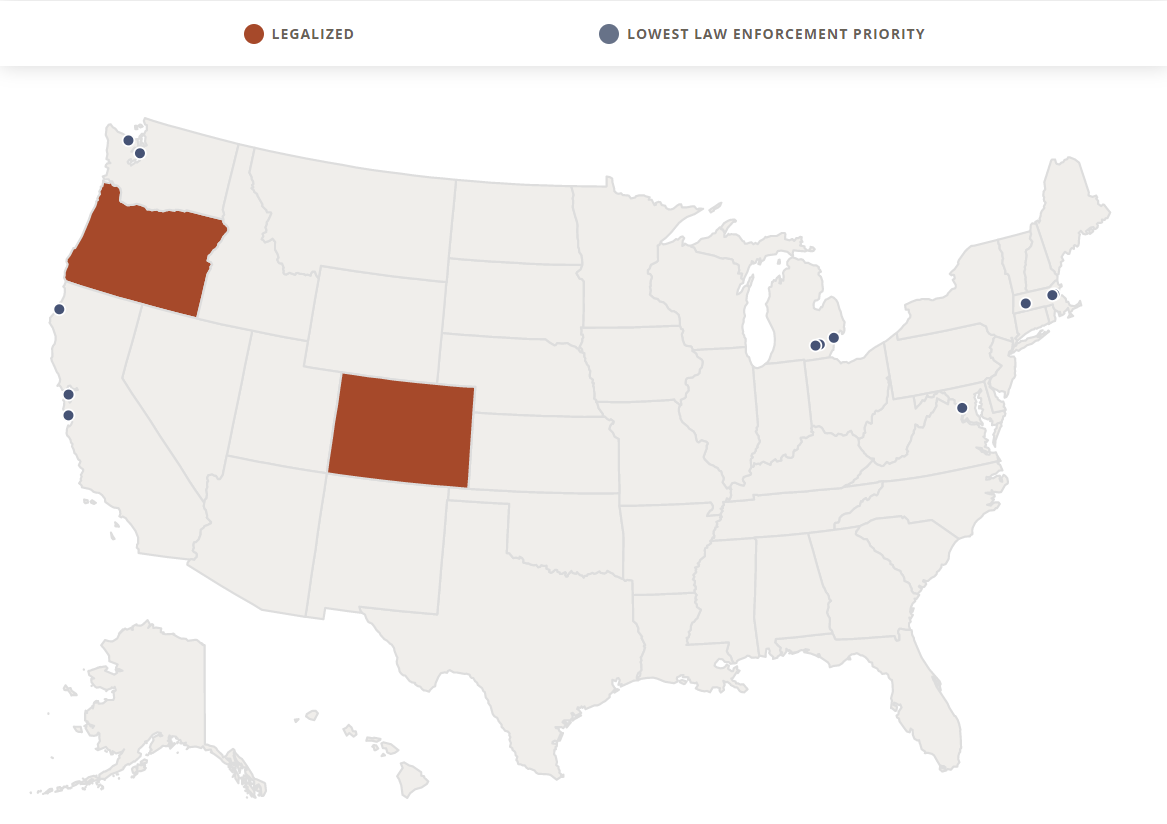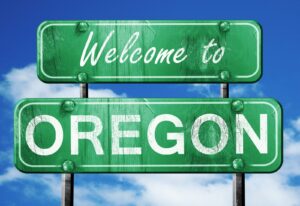Our psychedelics team routinely fields questions from non-Oregon residents looking for Oregon psilocybin licenses. However, one of Measure 109‘s more infamous requirements is its residency requirement. These provisions require that, until January 1, 2025, manufacturing facilities and service centers must have majority ownership by individual(s) who have resided in Oregon for at least two years. Likewise, until January 1, 2025, facilitators must have resided in Oregon for at least two years.
These provisions create major roadblocks to people from California, Washington, or many other states looking to pick up psilocybin licenses in Oregon. Today, we’ll break down some of the key issues for non-Oregon residents looking for psilocybin licenses.
Before jumping into the analysis, I should point out that residency requirements have been a huge issue for cannabis licensees basically forever. We’ve written about them – and why we think they violate the federal Constitution’s dormant commerce clause – on our sister Canna Law Blog. I won’t recount the legal argument in full here but it bears noting that recently, a federal court came to the same conclusion regarding Maine’s unconstitutional residency requirement. This is not binding on all other jurisdictions or with respect to psilocybin licenses, but it tends to highlight what we think is a likely legal outcome if someone were to fight something like this in court.
View the US Map of Psilocybin Legality by State
That said, someone would need to sue the state of Oregon and challenge its residency requirement as unconstitutional in order to get to that point. We think it unlikely that someone will go through the effort of suing in federal court (where psilocybin is federally illegal). Even if they do, the incentives are not necessarily as strong because (1) Oregon’s residency requirement sunsets on January 1, 2025, and (2) Oregon’s residency requirement isn’t absolute. That is, other than with respect to facilitator licenses, non-Oregon residents can still own up to 49.9% of a manufacturer or service center license.
In sum, the chance that someone takes Oregon to court over this requirement seems pretty slim. So we just assume that the requirement will stand for the time being. With that in mind, let’s break down what can and cannot happen.
First, as mentioned above, if a service center or manufacturing psilocybin license owned by a business (as opposed to an individual), up to 49.9% of that business can be owned by non-Oregon residents. During those first two years, this means that the local resident will need to have majority ownership. But there does not appear to be any prohibition on a written agreement to acquire a majority interest on or after January 1, 2025 by the non-Oregon resident.
Second, facilitator licenses are psilocybin licenses for individuals. There’s no getting around the residency requirement prior to January 1, 2025. But as mentioned, these facilitators can work in service centers that are partially owned by out-of-staters.
Third, the requirement for two or more years of residency is a bit vague in and of itself. The law does not expressly say that those two years must have been the immediately prior two years or that they must have been consecutive. The draft Oregon psilocybin regulations however seem to clarify that the state wants to see consecutive residency for the immediately prior two years. The applicable portions of the draft rule (with emphasis added) are below:
Proof of residency as required under this rule may be documented by providing:
(a) A valid Oregon driver license or Oregon identification card issued at least two years prior to the date of application.
(b) Oregon full-year resident tax returns for the last two years.
(c) Proof of Oregon voter registration issued at least two years prior to the date of application;
(d) Utility bills, lease agreements, rental receipts, mortgage statements or similar documents that contain the name and address of the applicant dated at least two years prior to the date of application and from the most recent month.
(e) Letter from a homeless shelter, nonprofit entity, employer or government agency attesting that applicant has been an Oregon resident for at least two years.
(f) Any other documentation that the Authority determines to reliably demonstrate proof of Oregon residency for the last two years.
The rules are not finalized and we have not yet seen the applications yet (which will almost certainly contain attestations about residency) so it’s impossible to say for sure, but it looks like Oregon will want to see evidence of two years of prior residency.
The bottom line here is that for now, non-Oregon residents will be able to own minority interests in manufacturing and service center psilocybin licenses, but not facilitator licenses. Come January 1, 2025, all bets will be off, absent any intervening interference by the state legislature. But for the time being, non-Oregon residents will be limited in what they can do.
For related posts on the Oregon residency requirement, check out the following:



























